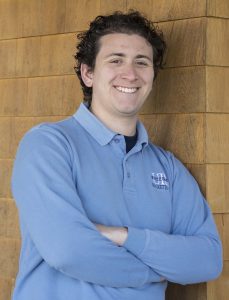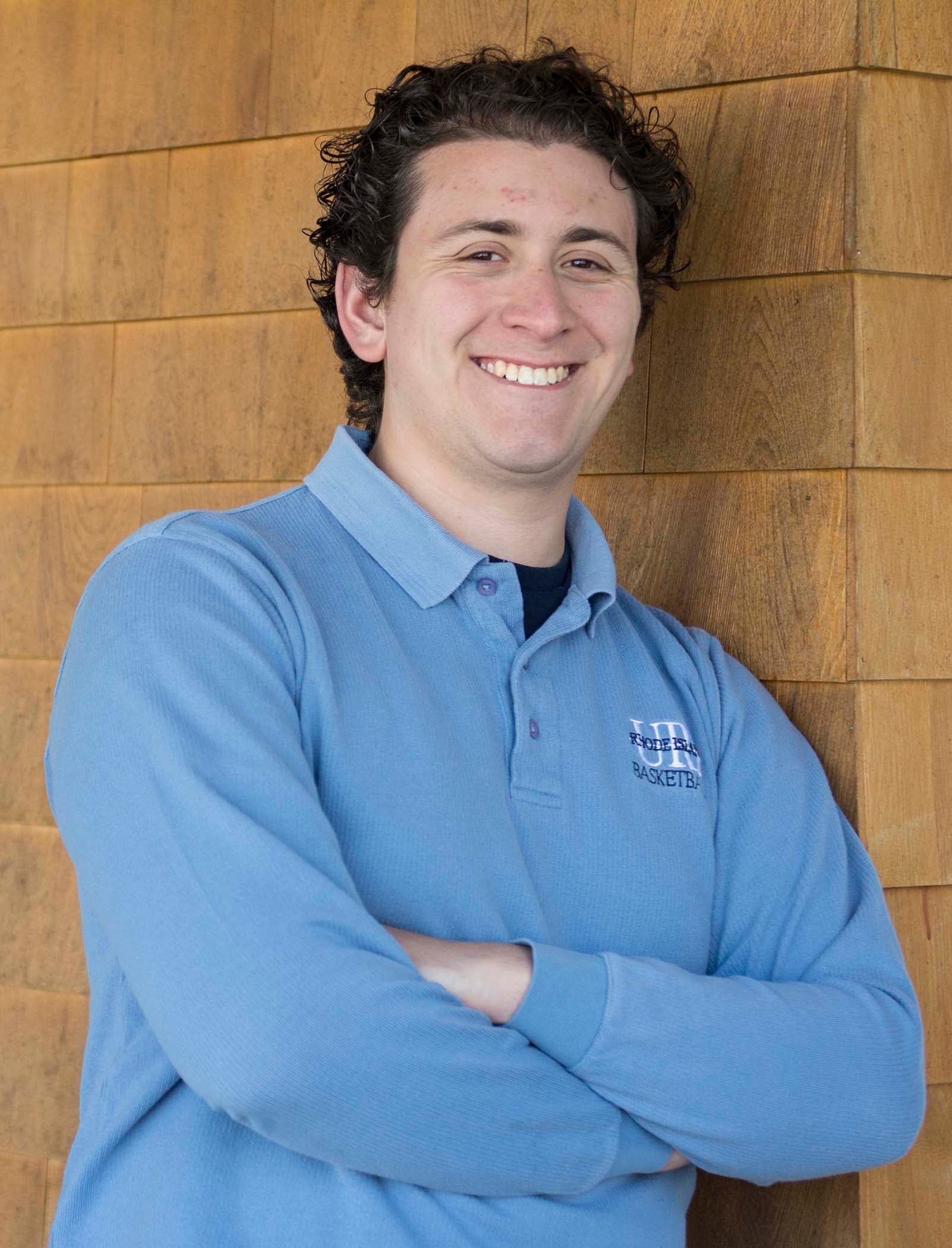Jacob Marrocco

- Hometown: Warwick, Rhode Island
- Major: Journalism and History
- Graduation Year: 2016
Hemophilia gave Jacob Marrocco a byline, a dream job, a life full of possibility.
The University of Rhode Island senior was diagnosed with the bleeding illness as an infant. Playing sports as a kid was too risky so he picked up a pen and wrote about what he loved.
At the tender age of 21, he’s the assistant sports editor at The Warwick Beacon, his hometown paper. He’s the news editor (and former managing editor) of The Good 5 Cent Cigar—URI’s student newspaper—and he’s carrying a full load of classes, on track to graduate in May with a double major in journalism and history.
“Somebody must like me upstairs,” he says, pointing to the heavens. “I don’t know how this is happening to me. It’s amazing.”
Hemophilia is a rare disorder in which blood doesn’t clot normally. Marrocco says small cuts aren’t a big problem; it’s the bleeding inside his body that is of most concern. If left untreated, that bleeding can lead to organ damage and even death. There is no cure, but the illness can be treated with blood-clotting drugs.
Growing up in the Governor Francis Farms neighborhood of Warwick, Marrocco played kickball and Wiffle ball with his classmates during gym, but contact sports like football, soccer and hockey were out of the question.
“It definitely stunk,” he says. “I had a lot of friends who played sports. It was tough.”
A history teacher at Pilgrim High School pulled him aside one day: You’re a writer, she said. “That was a great confidence boost,” says Marrocco. Sixteen years old and full of beans, he walked into the Beacon newspaper to offer his services. His first assignment was a basketball game at Pilgrim High School—Pilgrim Patriots versus West Warwick Wizards.
“Man, it was very intimidating,” he recalls. “I had to get it all right, get it all down, names spelled right, the stats.”
The only two things he got correct were the players’ names and the score. The sports editor took pity on the kid. He sent him off to cover a local football game. More troubles. “I missed the deadline,” says Marrocco. “He wasn’t happy at all about that.”
There was a two-year lull. In May 2012, Marrocco enrolled at URI. It was tough at first. He was homesick and away from close friends. His spirits lifted when he walked into Room 125 in Memorial Union: the Cigar newsroom.
“It changed my life,” he says. “If you want to be a journalist, that’s the best way on campus to get experience.”
He started out as a contributing sports reporter—and also covered the Student Senate. By the second semester he was a staff sports writer, penning four stories a week about everything from women’s diving to URI’s snow removal plans. He wrote on deadline using his laptop—on his lap.
He also hosted a sports talk on RIU2—URI’s online radio station—and was a play-by-play announcer for that radio station as well as WRIU, the University’s student-run FM station. He covered URI’s football, basketball, soccer, hockey and baseball teams.
“I was thrown into the fire,” he says. “It was great.”
Sports fired him up: “Nothing’s scripted. You see the rivalry, the intensity. You don’t know what records they’re going to break. You never know what’s going to happen.”
A promotion came his sophomore year. He became sports editor, supervising a staff of seven reporters. He embraced the 15-hour work week as a scribe: “I loved it.”
In May 2015, the Beacon came calling again. This time, he had the clips and experience thanks to the Cigar. An editor at the paper offered him a summer sports reporting gig. Marrocco left his job slicing salami and provolone at Dave’s Marketplace and grabbed a notebook. First day: May 11, 2015.
“That was the day my dream came true,” he says. “And I was only 20. Getting your foot in the door in journalism is the hardest thing to do, and I did it.”
His last year at URI is a whirlwind of classes, reporting, writing, editing and picture taking. (Yes, he’s a photographer too.) He works about 10 hours a week at the Cigar and 25 hours a week at the Beacon. That’s in between his classes: “History of Modern Day Latin America” and “Ethics of Journalism,” among others. “It’s fun,” he says, calmly.
Some day, he’d like to work as a sports writer at The Boston Globe or, better yet, The New York Times. For now though, he is “thrilled—definitely the word” to be writing for his hometown paper. That partnership will continue after graduation when he begins a full-time job there.
“I wouldn’t be doing sports writing if I didn’t have a bleeding disorder,” he says. “I decided early that if I can’t hit that home run I might as well write about it. I thought it was the best way to cope. It worked out. As odd as it sounds, hemophilia made me who I am today.”
URI Photo by Nora Lewis
Media Contact: Elizabeth Rau, 401-874-4894

